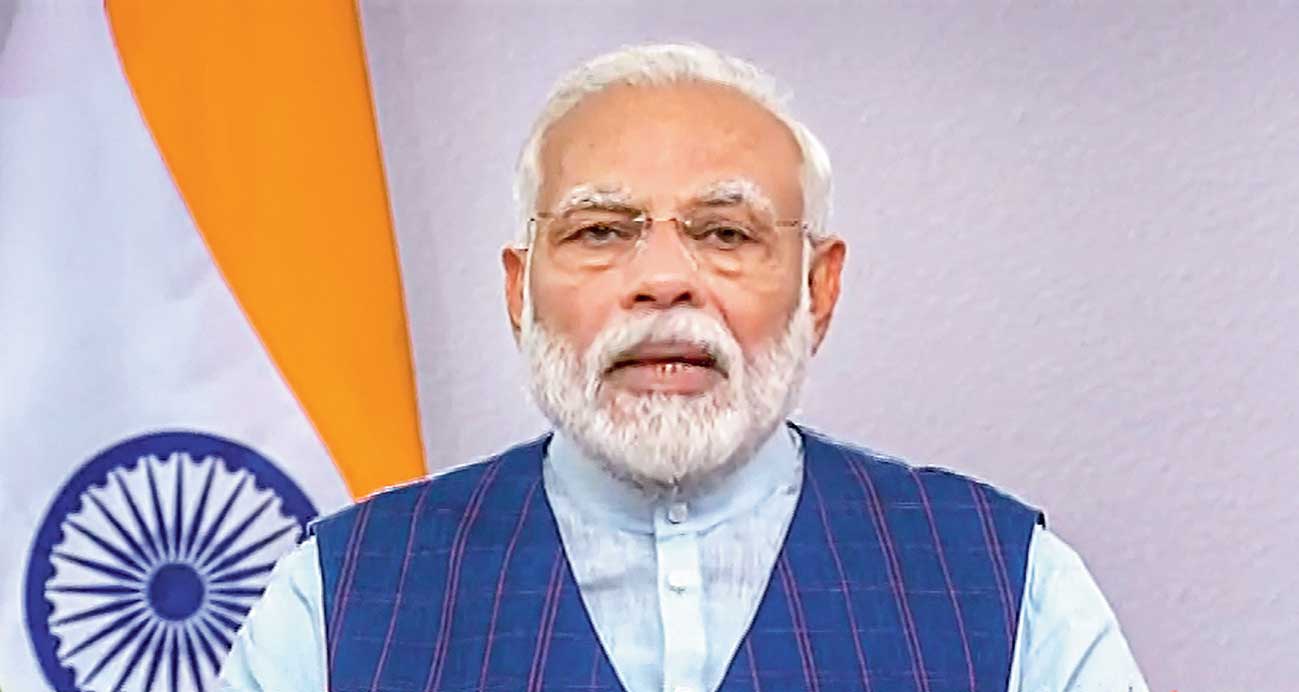Amid coronavirus-induced lockdown, Prime Minister Narendra Modi on Saturday deliberated on ways to reform the agriculture sector with emphasis on agriculture marketing, access of farmers to institutional credit and freeing the sector of various restrictions with appropriate backing of laws.
Agriculture accounts for 15 per cent of India's gross domestic product and is a source of livelihood for more than half of the country's 1.3 billion population.
The government has maintained that the country's farm sector is functioning smoothly despite the Covid-19 lockdown and there will not be much impact on its growth in the current fiscal, unlike other sectors.
The pros and cons of bio-technological developments in crops or enhancement of productivity and reduction in input costs was also deliberated, an official statement said.
The meeting also focused on making strategic interventions in the existing marketing eco-system and bringing appropriate reforms in the context of rapid agricultural development.
Concessional credit flow to strengthen agriculture infrastructure, special Kisan Credit Card saturation drive for PM-Kisan beneficiaries and facilitating inter and intra-state trade of agriculture produce to ensure fairest return to farmers were some of the other important areas covered, the statement said.
Developing eNAM or the National Agriculture Market into a 'platform of platforms' to enable e-commerce was one of the important topics of discussion on Saturday.
Discussion also emanated on the possibilities of a uniform statutory framework in the country to facilitate new ways for farming which will infuse capital and technology in the agrarian economy.
The challenges of the Model Agricultural Land Leasing Act, 2016 and how to protect the interest of small and marginal farmers was discussed in detail.
Ways to make the Essential Commodities Act compatible with present times so that large-scale private investment in post-production agriculture infrastructure is incentivised, and how it has a positive effect on commodity derivative markets, was also discussed.
Developing Brand India', creation of commodity specific boards/councils and promotion of agri-clusters or contract farming are some of the interventions that were deliberated to boost agriculture commodity export.
The use of technology in the agriculture sector is of paramount importance as it has the potential to unlock the entire value chain for the benefit of farmers.
PM Modi emphasised on the dissemination of technology till the last mile and making farmers more competitive in the global value chain.
It was decided to further strengthen the role of Farmers Producer Organisations (FPOs) to bring vibrancy in agrarian economy, transparency in agriculture trade and enable maximum benefits to the farmers.
Overall emphasis was on revisiting the existing laws governing market for better price realisation and freedom of choice to the farmers, the statement said.
Agriculture and allied sector's growth stood at 3.7 per cent during the 2019-20 fiscal.










